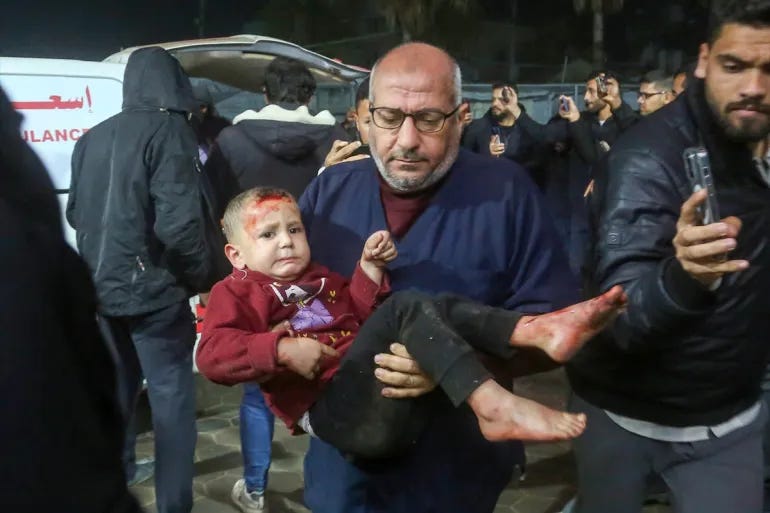At Least 80 Killed in Gaza as Israeli Strikes Continue Before Ceasefire Takes Effect
An Israeli strike on a Gaza City house kills 18, while Palestinians anxiously await the start of the ceasefire on Sunday.
Israeli airstrikes have killed at least 82 people in Gaza, including 30 in Gaza City, according to medical sources. The attacks have come despite a ceasefire agreement announced between Israel and Hamas.
One of the deadliest strikes occurred on Wednesday night, when an Israeli raid on a house near the Engineers Union Building in Gaza City killed at least 18 people. The Palestinian Civil Defence also reported retrieving 12 bodies from the Sheikh Radwan neighborhood in Gaza City.
In central Gaza, five people died in an Israeli drone strike that targeted a gathering of people in the Karaj area of the Bureij refugee camp.
The death toll continued to rise throughout Wednesday, as Palestinians cautiously returned to their shelters after briefly celebrating the news of the ceasefire. In central Gaza’s Deir el-Balah area, residents momentarily turned the streets into a stage of celebration, a stark contrast to the usual scene of mourning and grief.
Hani Mahmoud, reporting from the area, said, “For a couple of hours, people turned this whole area into a stage of celebration... something we are not used to seeing here.”
However, the ceasefire does not take effect until Sunday, and fear of intensified Israeli airstrikes and artillery bombardment quickly overshadowed the brief sense of relief. Mahmoud added, “We are expecting a surge in attacks by drones and heavy artillery, and that’s what caused people to end the celebrations after two hours.”
Anas al-Sharif, reporting from Gaza City, described how Israeli airstrikes “extinguished” the initial joy of residents who had hoped for relief. “Immediately after the announcement, Israeli warplanes extinguished that joy for the people – striking hospitals, shelters, and homes with direct air strikes,” he said.
Both Israel and Hamas have confirmed the ceasefire deal and a captive exchange agreement, though Israel noted some final details are still being negotiated. Israeli Prime Minister Benjamin Netanyahu’s office confirmed that discussions were ongoing, particularly concerning which Palestinian prisoners would be released in exchange for captives.
As of January 1, 2025, there are over 10,000 Palestinian prisoners held in Israeli jails, excluding those taken from Gaza and detained by the military. Dr. Hussam Abu Safia, the director of Kamal Adwan Hospital in northern Gaza, was among those detained.
Izzat al-Risheq, a senior Hamas official, said the ceasefire agreement met all of the group’s conditions, including the full withdrawal of Israeli forces from Gaza, the return of displaced Palestinians, and a permanent end to the conflict.
The exact time for the ceasefire’s start remains unclear, but the process will unfold in three phases.
4o mini


